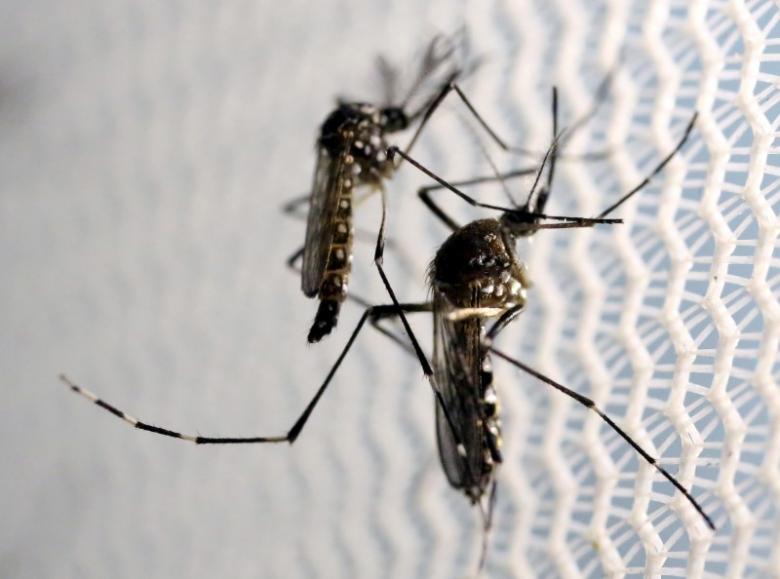Study in mice shows Zika virus also attacks adult brain cells

CHICAGO – US researchers have found that Zika can attack special populations of brain cells in adult mice in the part of the brain involved in learning and memory, raising new questions about how the virus may be impacting millions of adults who have been infected with the virus.
The findings, published on Thursday in the journal "Cell Stem Cell," are the first to look at whether Zika can attack the same kinds of cells in adult mice that they do in fetal mice.
Experts cautioned that the findings are preliminary and may not have any correlation to how Zika impacts human brain function, but they suggest the need for follow-up research.
"This is one potential consequence we need to look at," said Dr. Joseph Gleeson, an expert in pediatric brain disease at The Rockefeller University in New York, who led the study.
Zika has already been shown to attack fetal brain cells known as neural progenitor cells - a type of stem cell that gives rise to various kinds of brain cells. The death of these cells is what disrupts brain development and leads to the severe birth defects seen in babies whose mothers were infected with Zika during pregnancy.
U.S. health officials have concluded that Zika infections in pregnant women can cause microcephaly, a birth defect marked by small head size that can lead to severe developmental problems in babies.
The connection between Zika and microcephaly first came to light last fall in Brazil, which has now confirmed more than 1,600 cases of microcephaly that it considers to be related to Zika infections in the mothers.
Fetal brains are chock full of neural progenitor cells, which are responsible for making cells that form key brain structures. Adults, whose brains are fully formed, have far fewer and there are some pockets remaining - including in the hippocampus, a part of the brain involved in memory and learning.
Gleeson wanted to see if Zika could attack these cells in adult mice. To find out, his team injected the virus into lab mice and examined their brains for Zika infection.
In the hippocampus, Gleeson said "it lit up like a Christmas tree and wiped out the stem cell population."
"Based on our findings, getting infected with Zika as an adult may not be as innocuous as people think," he said.
There have already been signs that Zika affects adult nerve cells. Several teams have published papers showing that in some patients, Zika can cause serious brain and spinal cord infections - including encephalitis, meningitis and myelitis - in people exposed to Zika.
In rare cases, Zika has also been linked with Guillain-Barre Syndrome, a post-infectious autoimmune disorder that can cause temporary paralysis in adults. –Reuters







